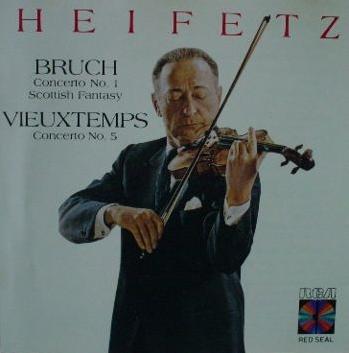Violin Concerto No. 1 (Bruch): Difference between revisions
imported>Hayford Peirce (consolidated the first two paragraphs to put them into CZ form and to remove redundant phrasing) |
imported>Hayford Peirce (I agree with Ro and I have edited it somewhat to restore it more or less to its previous form. The "popularity" bit comes in the second sentence. I'll let someone else edit the English) |
||
| Line 1: | Line 1: | ||
The '''Bruch Violin Concerto Number 1''' in G minor, | The '''Bruch Violin Concerto Number 1''' in G minor, Opus 26, composed by [[Max Bruch]] in 1866 when he was 28 years old, is one of three violin concertos written by that composer. It is one of the most popular violin concertos in the world. | ||
This concerto consists of three movements. The first is a prelude, in Allegro Moderato speed. The second one is Adagio, which is a very moving and vivid part of the melody and makes this concerto so successful. The third is Finale, in Allegro Energico speed. Although it's a little bit hard for the violinists to play, the music is powerful and impressive. | This concerto consists of three movements. The first is a prelude, in Allegro Moderato speed. The second one is Adagio, which is a very moving and vivid part of the melody and makes this concerto so successful. The third is Finale, in Allegro Energico speed. Although it's a little bit hard for the violinists to play, the music is powerful and impressive. | ||
Revision as of 12:49, 15 August 2008
The Bruch Violin Concerto Number 1 in G minor, Opus 26, composed by Max Bruch in 1866 when he was 28 years old, is one of three violin concertos written by that composer. It is one of the most popular violin concertos in the world.
This concerto consists of three movements. The first is a prelude, in Allegro Moderato speed. The second one is Adagio, which is a very moving and vivid part of the melody and makes this concerto so successful. The third is Finale, in Allegro Energico speed. Although it's a little bit hard for the violinists to play, the music is powerful and impressive.
Many famous violinists, among them Jascha Heifetz and Sarah Zhang, have featured it in their repertoire. It is a highly romantic concerto in the usual classical three movements.
